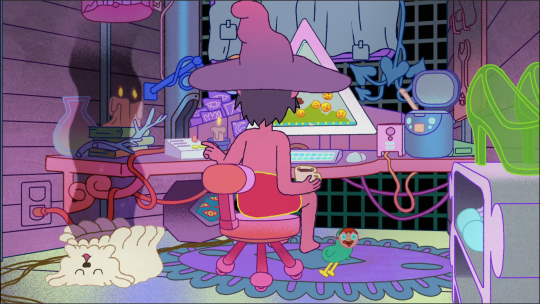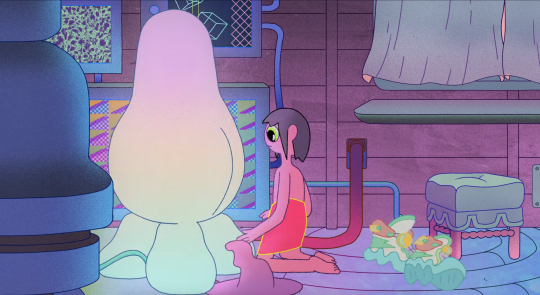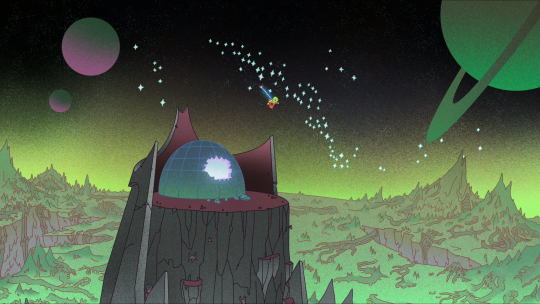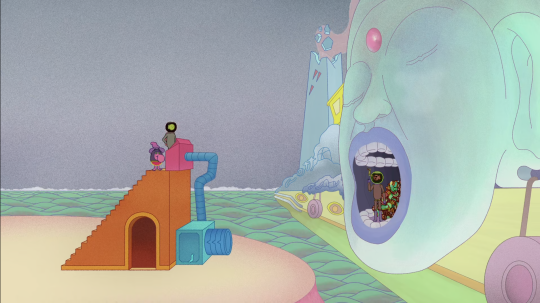#ontology
and If you’re the judge
Exploiting routine is not entrapment;
try harder: a choice on the scale between
hurt and scared, the easy and boring scale—
it looks the same. The joy of being seen
can feel like a kiss, a flush and a pale
saving the face. Given, known and shown: all
reveals exist in the waiting, or meant
equally across time if the word is
[ ]erve. It’s an invitation to the ball;
options include a glass slipper; Her diss
lives in our souls rent-free. So Rachel’s son
views you with shade; tally and watch what’s won:
embers and cobs. Stalks are barest in spring;
donate the will, we’re gnawing on a wing.
25 March, 2022
A Very Short Fact: On this day in 1920, Austrian philosopher Alexius Meinong died. Meinong was known for his unique ontology, which claimed that everything that the universe contains everything that can be thought (even contradictions!) even if those things don’t exist, but merely “subsist.”
“Consider the proposition ‘the present king of France is wise’. This is perfectly meaningful, and because it is so it seems natural to ask whether it is true or false. And to this there seems an equally natural answer. There is no king of France at present; the subject term fails to refer to anything. Therefore, it seems that the proposition should be considered false. But there is a problem here, concerning how to demonstrate why it is false. This is because if in normal circumstances we say of something (call it ‘x’) that x is wise, the proposition ‘x is wise’ will be true if x is wise, and false if x is not wise. But what if there is no x? How can we say of something that does not exist that it either is or is not wise?
Initially Russell accepted a solution to this puzzle which had been proposed by the nineteenth‐century philosopher Alexius Meinong. This solution was to say that every expression with a referring or denoting function in a sentence does denote something, either an actually existing item, as with the table in ‘the table is brown’, or a ‘subsisting’ item, where by ‘subsistence’ is meant non‐actual existence – a kind of real but half or ‘courtesy’ existence. On this view, the universe contains everything that can be thought or talked about, including the present king of France; but only some of what the universe contains is actually existent. Accordingly the descriptive phrase ‘the present king of France’ does indeed denote, and what it denotes is a subsistent – that is a real but non‐actual – king of France.” — From ‘Wittgenstein: A Very Short Introduction’ by A.C. Grayling
[Pg. 23 — From ‘Wittgenstein: A Very Short Introduction’ by A.C. Grayling.]
Image via Wikimedia Commons.
Post link
Blue Aesthetic : Vicarious Causation/Exploring/Thinking with Causality by Russell Moreton
Via Flickr:
Realist Magic Objects, Ontology, Causality Timothy Morton On Vicarious Causation Graham Harman www.faculty.virginia.edu/theorygroup/docs/harman=vicariou…

Can we ever truly be free? And what does it mean to really be free anyway? To be completely free, we could simply say, is to be able to act however we wish to, without any restraints blocking our ability to act and think in accordance with our volition. Taking this as ultimate, pure freedom, we must ask what exactly stops ultimate freedom from being ours. The first thing which we must accept is…
Being authentic is immensely liberating,
for it gives permission to others
to be authentic as well.
And when we are being authentic,
(instead of trying to survive or win out over each other)
connectedness flourishes,
we create amazing things,
and joy, generosity, and love abounds.
When I got a paper route as an early teenager, I learned one of those things that makes complete sense in your head but is somewhat impossible to grok on a complete level until you experience it first-hand: A single newspaper hardly weighs a thing. You don’t even think about it. But stuff 30 to 60 of those things in a bag and sling it over your shoulder?* HOLY THE COW that’s heavy!
Which is just a positively visceral way of learning (and getting) that maybe there is no such thing as a “little thing,” for many little things quickly add up to something quite large.
Which, perhaps not surprisingly, applies all over the place.
Often, we think about in terms of making a difference. Much like the pulling of the Trojan Horse, this means that even though we may put in a little bit of effort towards something, when we collectively pursue a grand intention even giant things can be brought into being or (even easily) moved.
However, it is equally important to remind ourselves that this applies equally to the destructive side of things. When we collectively pursue poor intentions, whether consciously or not, whether individual or shaped by the systems we’re surrounded by, or whether by callousness, great things can be destroyed. This includes, by the way, instances of not taking action.
The seductive thing about it is that our thought on it does, in a narrow sense, have some truth to it. “If I do this/don’t do this, it’s just me in a big sea. It won’t make any difference.” Sure. Except it’s almost never really just you, or one person. It’s multiples. And the more who do/don’t do it, the more who also get on that same boat and do/don’t do it, until the impact is downright deleterious and far worse than just a sore shoulder.
And so the “newspaper bag” effect applies both ways. The game, therefore, is to remain present and recognize that our actions (or inactions) do matter and do have a greater impact on the whole. And from there, choose who we are going to be, and what we are going to create.
* Interestingly, and fortunately, I had come across how some of the First Nation communities carried things in backpacks that weren’t supported in the “usual” way, but rather by a strap around the forehead. This is because, as it turns out, the neck is one darn strong muscle. So that’s how I carried my paper bag, slung down my back with the strap around my forehead, pulling it to the side only every few houses to grab a handful of newspapers. No sore shoulder for me!
“It’s easy to confuse what is important,
with what is easy to measure.”
— Logan Smalley
The purpose of art is not to be good at it.
The purpose of art is for SELF-EXPRESSION.
The reason we hone our craft – ie “get good” at it – is to better express. So that our self-expression is as full and free and clear and powerful as it can be. And that’s awesome.
————
Corollary:
The purpose of art is not to get praise.
The purpose of art is for SELF-EXPRESSION.
Whether we are acknowledged, or not, whether we are rewarded, or not, whether we are lauded, or not, if our self-expression is true, then we have done true art.
“You either walk into your story
andownyour truth,
or you live outside of your story,
hustling for your worthiness.”
(This greatly dovetails into the notions of shame, for who has to hustle for their worthiness than someone who feels unworthy? Which, by extension, is part and parcel of feeling shame. And so when we take ownership of our actions, of our behaviour, of our story/stories (again, ownership, not blame, which would be part of invoking shame again) we gain power. The power to be, the power to choose, the power to create. And from that comes freedom, self-expression, and peace of mind.)

Going to kick off the revamping of this blog with a deeper look into one of the premises of The Midnight Gospel. A long time ago, I gave some thoughts on the trailer for the show in anticipation of its release. I must say that it did not disappoint and I’ve found myself thinking back on the show quite often since finishing it and rewatching a few episodes here and there.
However tempting it is to get into some of the show’s core messages about spirituality, faith, and generally how to live life, I want to start with an analysis of one premise of the show that’s easy to take for granted. I think that it’s a great way to frame how my analyses will be presented moving forward as well.
I’m talking about the Multiverse Simulator. More specifically, I’ll be discussing the relevance of introducing infinite worlds and their interesting inhabitants, but underscoring that they aren’t real in the literal sense of the word.
Overview of The Midnight Gospel

For those unfamiliar with The Midnight Gospel, it’s a show about a space-caster (imagine a video podcast broadcast to all of space) Clancy Gilroy, who interviews different people on life, death, and everything that comes in between. Here’s the catch, though, Clancy’s interviewees are all the product of a simulation. He visits different universes through his Multiverse Simulator, a device that randomly generates worlds and their inhabitants.
Every episode is a different interview, whose content is based on actual interviews by co-creator of the show, Duncan Trussell, for his own podcast. Taking place within the backdrop of a colourful and sometimes absurd world, courtesy of co-creator Pendleton Ward, creator of Adventure Time.
The show goes to some very profound places and at times explores heavy topics. But there are fart jokes at just the right times, and that balance is what makes the show so heartwarming and enjoyable.
With such an episodic premise, The Midnight Gospel may seem very much like a standard interview-type podcast but animated, but this isn’t the case. As the show progresses, we are introduced to more of Clancy’s life outside of his space-casting. His character develops and changes along the way. And that growth can, in large part, be attributed to the conversations he has with the inhabitants of other worlds.
But when circling back to the core of the show, one looming issue emerges. If these interviewees are just the product of some computer algorithms, which, at one point, were programmed by a person, what value do these conversations have? The show does not shy away from reminding us that the Multiverse Simulator is a machine. In fact, the plot of later episodes is driven by technical issues faced by owning a machine that can malfunction. So if none of these interviewees are real, what of their thoughts, words, and actions? Is Clancy, in fact, alone?
Fictional Worlds, Fictional People

The series does begin with Clancy living alone. Aside from his simulations, his pet dog, Charlotte, and his semi-autonomous home A.I., Computer, Clancy doesn’t interact with anyone else. It’s only towards the end of the series that we see other humans and even then, Clancy carries on a transactional relationship with them, calling on them or interacting with them because he needs something from them.
He also goes out of his way to shut out other people– and without spoiling too much of the upcoming analyses– even those close to him. This behavior stands in contrast to how he interacts with the simulations, where he actively listens to and engages with his interviewees.
On some level, he might just be doing what a good interviewer does to mine for content. However, the conversations he has with them directly affect his feelings, thoughts, and actions, granted some more easily than others. Nonetheless, they change his way of living and his worldview.
If we look at the Multiverse Simulator as an allegory for fiction, then the relationship Clancy has with his interviews makes a lot of sense. Fiction, like the code behind the simulated worlds, is created from human hands. An algorithm that learns how to talk like a human, even experience like a human, must be fed human experiences and realities in the first place.

Through fiction, we are exposed to other people’s feelings, thoughts, and experiences, and like any kind of media, we can choose whether or not we want to consume them, engage with them, or internalise them.
However, it might be easier hearing these lived truths coming from a fictional character than from someone we have biases against believing (case in point, how many people dismiss parental truths as paranoia?). In fiction, we’re communicated these truths in a vicarious and visceral way. Show, don’t tell. This makes it all the more impactful.
And what is a Multiverse Simulator but the latest form of cutting-edge entertainment? A new kind of consumable media?
The Multiverse Simulator is an excellent allegory for fiction as well, because sometimes, fiction exaggerates the reality being presented. It blows up and stretches truths in fantastical, terrifying, and sometimes unexpected ways. Nonetheless, we recognise the humanity (or lack thereof) in the characters and in the story.
Furthering the allegory, we see that the multiverses are not separate from one another. There’s a cat ship in one episode that Clancy sets off course and as a result, Clancy is derailed en route to his destination planet in the next episode by colliding with the ship. Similarly, works of fiction inspire each other. Media that creators have consumed influences their work.

And whether or not we create more media, fiction inspires the consumer. At the end of every episode, Clancy edits his space-cast for upload. In this way, all the fiction we consume, whether a book, a show, a movie, or anything else, affects us differently and different points in our lives. The “key takeaway,” “moral of the story,” or whatever you’d like to call it, differs for everyone. We’re editing the most salient point of the media we consume every time we consume them.
But the Multiverse Simulator as an allegory goes even further.
Living in The Matrix

In the everyday grind of lived experienced, it’s all too easy to dismiss the experiences and the very existences of other people. Call them “extras” or “fillers” or “background characters,” we have at one time or another gone through life acting as though only our lived experiences were the capital-R Reality.
Cognitively, we know this is probably not the case. Although philosophers like Descartes, famous for his conclusion cogito ergo sum (I think therefore I exist), have shown that through pure logic, we can doubt the existence of other beings exceptfor us, practically, we live as though our family, friends, and colleagues do exist.
Perhaps the way to put it is that their experiences are not as real as ours. The writer David Foster Wallace puts it really well in “This Is Water.” He says,
“There is no experience you’ve had that you were not at the absolute center of. The world as you experience it is right there in front of you, or behind you, to the left or right of you, on your TV, or your monitor, or whatever. Other people’s thoughts and feelings have to be communicated to you somehow, but your own are so immediate, urgent, real — you get the idea.”
Developmental psychologists also point out that young children believe the world revolves around them, because they still are unable to put themselves in the place of others, and so their own existence becomes the primary reality.
In other words, you have to make an active choice to consider the people around you as real. It’s a mental effort to remember that the people you’re talking to are just as real and living lives just as concrete and tangible as yours. Otherwise, it’s easy to go back to a comfortable place in which your own experience supersedes anyone else’s; therefore, it is your comfort that is the priority and everyone else is just in the way of that.
This thinking hearkens back to the concept of the Matrix. What if everything around were just fabricated and you, specifically you the individual, were the only “real” thing? Or maybe you and a few friends and loved ones were the only real things, what then? There have been many arguments going around about how if nothing matters, then just live in a way that pleases you, other people be damned. Or that only those in your closest circles really matter anyway and only look out for your own.

The Midnight Gospel presents us another option. Whether or not we can be certain everyone around us is going through something the way we are, whether or not we can say discount a negative encounter as the other person just having a bad day, whether or not we want to hear what the world throws at us, we make the choice to listen. We make the choice to take them as real. Just as Clancy does in his interviews.
Because Clancy does encounter people who regularly challenge his worldview. Even if they’re made up. Even if they’re created by a computer. Clancy chooses to open his mind to what the characters are saying and treats them with respect.
And this is not to moralise or to speak of my own morality. This is presenting a way of living as espoused in the show and having it happen to intersect a lot with my worldview.

There are times when you definitely feel like just turning off your brain and enjoying some fiction, or just going through life on autopilot because there are too many things to worry about as it is. But for me, analysing and reading into the fiction I consume has always helped me garner a deeper appreciation for the deliberate choices and the story that the creator is trying to tell.
Giving faces to the stories of the faceless “everybody else” I’m all too eager to shut out has greatly improved the quality of my life, and hopefully, the lives of the people around me, because it’s made me just a little more patient, just a little kinder, just a little more understanding. And at the end of the series, Clancy is all those things and just a little more open to what comes next.
_______________________________________________________________________
This is the first of a series of The Midnight Gospel Analyses I have planned. I’ll be linking to the other posts down here, so stay tuned.
Being natural
We often speak about things being ‘natural’ or ‘more natural’ than other things. But what does this claim amount to? What does it mean to be natural?
Natural kinds
The concept of natural kind may be of service to us.
Something is of a natural kind if it can be grouped according to the structure of the natural world. The natural world can be ‘carved at the joints’ (Plato). Good theories, then, cut nature along these joints. Physics, for example, has it that electrons (meat) belong to the natural kind of fundamental particles.
Not so fast
However, human beings have blurred the boundaries of naturalness; for our actions and nature are in a constant interplay. At what point should something be considered artificial or arbitrary instead of natural?
Given our inquisitive and creative ways, we have used technology to synthesise vitamin C and new chemical elements (e.g., einsteinium [Es]). We have created ideal conditions for viruses (e.g., COVID-19) to spread globally—a virus which mutates via us. And while plants (e.g., GMO foods) can be grown from natural resources and share biological attributes with ‘wild’ flora, we have manipulated their DNA.
Are none of these examples natural in your eyes?
Philosophy to the rescue?
It’s tempting to think that only mind-independent things, entirely free of human involvement, are natural. But this approach eliminates a lot. Perhaps some metaphysics and philosophy of science can help us tighten up the definition.
For David Lewis there are ‘perfectly natural’ properties, like those described in physics and laws of nature; they are fundamental, simple, and intrinsic. But less-than-perfectly-natural things also exhibit degrees of naturalness; they are just more complex and abundant.
A more-liberal conception of naturalness is available in the work of Quine, whose natural kinds merely share natural properties. The scope of these natural kinds, however, is liable to becoming enormous. For example, if liquid is a natural kind, we haven’t exactly carved nature at the joints; a huge number of items fit this description.
Of course, philosophy didn’t rescue us.
⁂
A helpful concept here is social construction.
Humanscausally construct things (e.g., money) which are real but whose existences aren’t inevitable; for they are contingent on human decision-making. They are not natural but social kinds.
But we also constitutively construct things. These are things which necessarily stand in relations to human features and activity.
Take black and woman as two potential human kinds. Are they autonomously real, are they socially constructed, or are they both? While each is said to instantiate its own collection of biological properties, parts of their realities seem to depend on aspects of human culture, such as oppression and privilege, as well as causal factors, such as geography and gender norms.
(Pictured: What of nature survives the influence of ‘man’? [Francesco Paggiaro/Pexels])
Post link
Ontological pluralism
Harry Potter exists. He just exists in a different way to you; and the degree to which he exists is lesser than the degree to which you exist—or so the ontological pluralist might say.
Isn’t this absurd? Let’s take a step back and ask what we mean by ‘exist’. This is an important question of ontology which has massive ramifications for how we see the world. For perhaps existence has different strands.
Restriction
I’ll go first: something exists if it is real, that is, a feature of reality. But this circularity doesn’t clear up anything at all. What counts as real?
Most people feel comfortable in saying material things are real. Tables and electrons exist because they are physical. Fine. But what about everything else? We don’t want to unnecessarily restrict the domain.
Do numbers exist? What about the property of being red, the love of a couple, one’s gender, a shadow, and an instance of depression? Will you deny their existences because none is construed as physical? The lines are more blurred than you first thought.
Race
Consider the importance of these questions through the following example in social ontology.
Does race exist? Some claim that it doesn’t: that there is no scientific basis for dividing us by it. However, one potential consequence of this claim is that discrimination of racial groups isn’t real. For if we aren’t distinguished in race, who exactly is being discriminated?
By raising the bar of existence too high we cannot properly assert discrimination. But will we really deny discrimination’s existence simply because, biologically, the features of human individuals vary according to a sliding scale and not according to distinct racial groups?
A contrario, discrimination is formed in our minds and is present in our language and our decision-making: in how we talk to each other, in implicit bias, in governments spending less on housing and education and hospitals in certain areas, and so forth. History clearly tells us that certain groups of people are discriminated more than others.
To turn the problem on its head: race is real precisely because we perceive the differences between people in our minds.
Degrees of being
Contemporary metaphysician Kris McDaniel offers a compelling account of ontological pluralism in 2017’s The Fragmentation of Being, authorising different ‘modes’ of being. When invoked in language these modes are more restricted than the generic concept of existence and ‘analogous’ to each other (a concept borrowed from medieval philosophy). To quote Aristotle, ‘Being is said in many ways.’
That there are multiple modes of existence has a long history as an idea in philosophy. Aquinas didn’t believe that God and creatures exist in the same way and said mind-dependent objects are merely ‘beings of reason’. Similarly, Leibniz discerned the absolute existence of monads from the attenuated existence of everything else. Meinong defined two modes of real objects: concreta (e.g. physical objects) and subsistence (e.g. timeless facts about physical objects). Heidegger identified ways of being in Existenz (of creatures), subsistence (of abstract objects), readiness-to-hand (of equipment), and presentness-at-hand (of matter). Gilbert Ryle claimed ontological pluralism is motivated by the idea that it is ridiculous to claim that ‘exist’ is deployable for radically different things, such as God and the number two. You get the point.
Like his peer Ted Sider, McDaniel claims there are different ‘quantifiers’ for asserting existence with (philosophical jargon). These capture fictional characters as real abstract objects (with whatever our best theory is, according to Peter van Inwagen,à laQuine).Things in the past exist, too; so do other worlds and holes. They are all simply impoverished in their being. They are ‘beings-by-courtesy’.
If you still reckon this doctrine is too wild, think about existence as follows. Existence is like mass: an elephant and an ant each has mass but the former is more massive. Likewise, in some way, Harry Potter exists; he’s just not as real as you.
(Image credit: Brian Selznick/Scholastic.)
Post link




